Towards a Digital Twin of the Ocean – a dynamic interactive replica of the ocean providing tailored ocean knowledge for better decision making to restore marine and coastal habitats, support a sustainable blue economy, and mitigate and adapt to climate change.
At the One Ocean Summit in Brest in February 2022, the European Commission’s President von der Leyen launched the European Digital Twin Ocean under the European Union’s (EU) Mission: restore our ocean and waters by 2030.
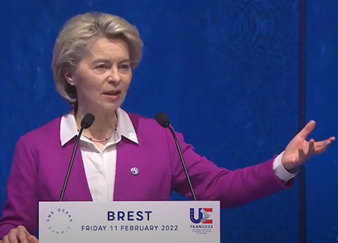 “The ocean is still largely a great mystery for humankind. That is why Europe is building a digital twin of the ocean. We are connecting our assets – like the Copernicus satellites, marine infrastructure like icebreakers, buoys and underwater drones, and high-performance computing. We will gather the raw data and turn it into real-time knowledge and longer-term predictions. We are putting the power of the digital revolution at the service of our climate. (…) Thanks to the EU and its Member States, a digital twin should be operational by 2024. It will make ocean knowledge open-access, available to citizens, scientists and policymakers around the world. It will be a platform for global cooperation. It is about putting the capabilities in place to achieve the commitments we make at this Summit. Together, with the digital twin, we will turn the lights on in the ocean.” – European Commission President Ursula von der Leyen
“The ocean is still largely a great mystery for humankind. That is why Europe is building a digital twin of the ocean. We are connecting our assets – like the Copernicus satellites, marine infrastructure like icebreakers, buoys and underwater drones, and high-performance computing. We will gather the raw data and turn it into real-time knowledge and longer-term predictions. We are putting the power of the digital revolution at the service of our climate. (…) Thanks to the EU and its Member States, a digital twin should be operational by 2024. It will make ocean knowledge open-access, available to citizens, scientists and policymakers around the world. It will be a platform for global cooperation. It is about putting the capabilities in place to achieve the commitments we make at this Summit. Together, with the digital twin, we will turn the lights on in the ocean.” – European Commission President Ursula von der Leyen
What is it and how will the DTO contribute to protecting and restoring our ocean?
The ocean holds the keys to an equitable and sustainable planet
As the name suggests, a Digital Twin of the Ocean (DTO) is a virtual numerical representation of the ocean regularly informed by observations from the real ocean. From coasts to the open ocean, from surface to the seabed, from physical to biogeochemical and ice variables, the DTO will aim to provide the most complete digital description of marine environments to simulate future scenarios and provide information for decision making. Fed by data from a wide range of possible data sources (satellite and in situ), the DTO will integrate novel modelling techniques coupled with Artificial Intelligence, Machine Learning, operating on state-of-the-art European High Performance Computing (HPC) and cloud infrastructures
The DTO will aim to generate knowledge accessible to every citizen on our blue planet, revolutionising our understanding of the marine and coastal environments, and provide a true testing ground to assess the outcome of different climate scenarios and human actions. Transforming ocean science as we know it, the DTO will be a game-changer for knowledge-based decisionmaking urgently needed to protect our ocean, use its resources in a sustainable way and mitigate and adapt to climate change.
Need for ocean and coastal data from existing and new sources
Sustained in situ observations (e.g. observations by profiling floats, research vessels, gliders, moorings, instrument-tagged marine mammals, etc.) will play a fundamental role in the DTO’s capabilities. Crucial for understanding the ocean system, in situ observations are needed to improve models and forecasts of the state of the ocean and its ecosystems, and to assess the impact of management strategies.
The European DTO will integrate the widest possible range data sources, leveraging all EU assets (Copernicus Marine, the European Marine Observation and Data Network (EMODnet), etc.) to transform data into knowledge and information. The DTO will be fed with satellite observations such as those provided by the EU’s Copernicus Earth Observation Programme together with in situ observations from the vast network of European marine research infrastructures at work (EuroArgo, EuroFleets, ICOS, EMBRC, EMSO, etc.). The DTO will also integrate or ingest new data flows from less traditional sources such as industry, citizen observations, etc.
Flagship events kicking-off the European DTO development
The first half of this year saw a series of landmark events to launch the development of the European DTO, including:
Useful Links
- European Commission website: European Digital Twin Ocean
- Digital Twin Ocean by Mercator Ocean International
- The European-funded Research and Innovation projects
- Blue-Cloud brings together leading European marine data infrastructures and networks (SeaDataNet, EurOBIS, Euro-ARGO, ICOS, SOCAT, ENA, EMODnet, Copernicus Marine) and e-Infrastructures (EUDAT, D4Science, WEkEO DIAS), allowing researchers to combine, reuse, and share quality data across disciplines and countries
- IMMERSE: aims to prepare numerical ocean models for the next generation Copernicus Marine Service
- Iliad (INTEGRATED DigitaL Framework FOR Comprehensive MARITIME DATA AND INFORMATION SERVICES): aims to establish an interoperable, data-intensive, and cost-effective Digital Twin of the Ocean
- Video animation on “What is the Digital Twin Ocean”
- Horizon – The EU Research & Innovation Magazine: A tale of two oceans: Scientists are building digital twins of the ocean
- G7 Future of the Seas and Oceans Initiative (FSOI) Resource Strategy Group: Enabling the Digital Twin Ocean Capability


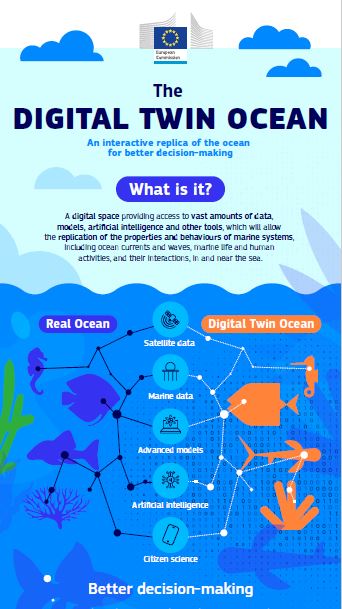
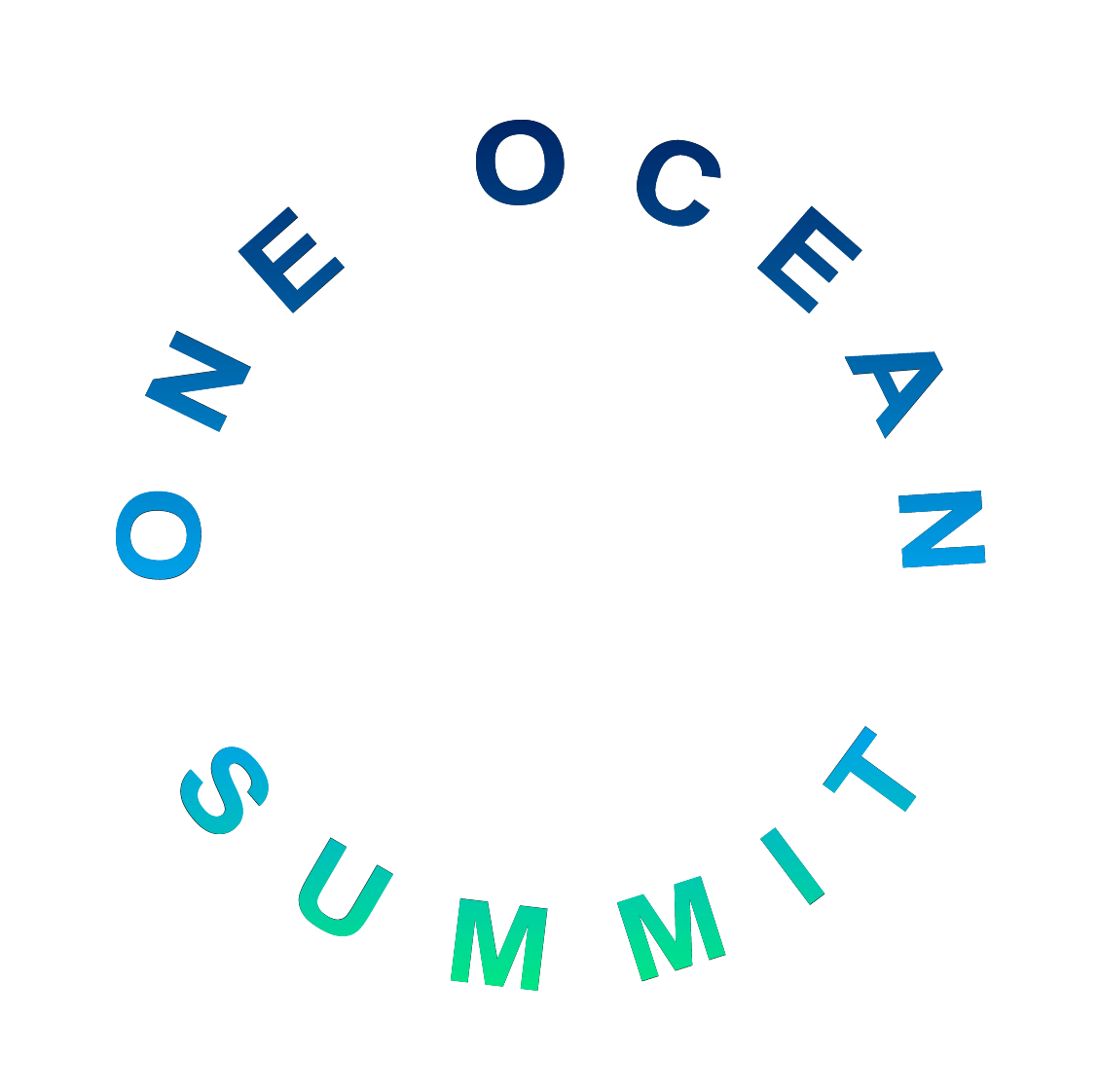 Organised in the context of the French Presidency of the Council of the European Union and with the support of the United Nations, the fifth edition of the One Planet Summit was entirely dedicated to the Ocean. During this ocean flagship event, President of the European Commission Ursula von der Leyen launched the European Digital Twin Ocean that will be developed under the EU mission: Restore Our Ocean and Waters by 2030 and seeks to place the EU as a digital champion for the ocean.
Organised in the context of the French Presidency of the Council of the European Union and with the support of the United Nations, the fifth edition of the One Planet Summit was entirely dedicated to the Ocean. During this ocean flagship event, President of the European Commission Ursula von der Leyen launched the European Digital Twin Ocean that will be developed under the EU mission: Restore Our Ocean and Waters by 2030 and seeks to place the EU as a digital champion for the ocean.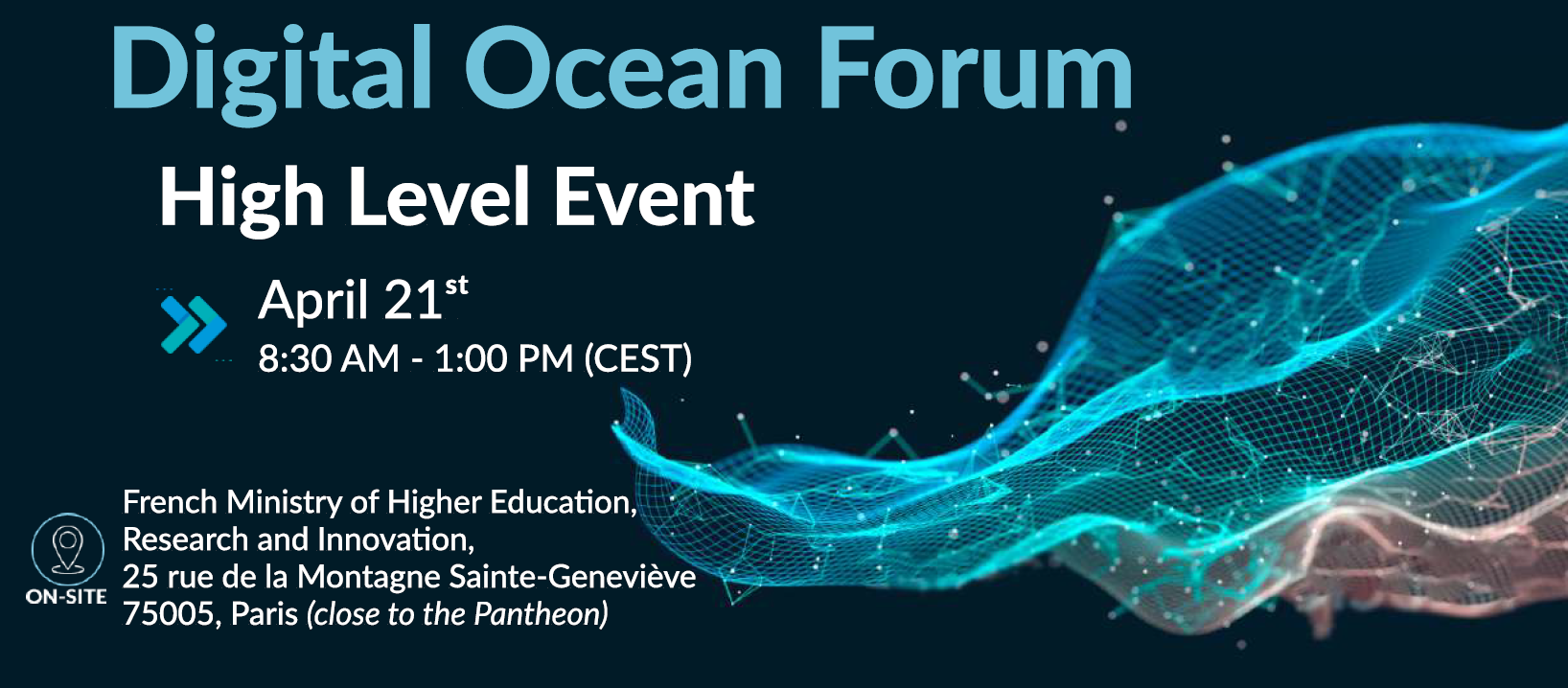 Mercator Ocean International, under the auspices of the European Commission and the French Ministry of the Sea in the context of the Presidency of the Council of the European Union, hosted the first Digital Ocean Forum. The Digital Ocean Forum was created in response to several initiatives including the EU Mission “Restore Our Oceans and Seas by 2030” and is the first step toward the goals to build a European DTO discussed at the One Ocean Summit in Brest (France).
Mercator Ocean International, under the auspices of the European Commission and the French Ministry of the Sea in the context of the Presidency of the Council of the European Union, hosted the first Digital Ocean Forum. The Digital Ocean Forum was created in response to several initiatives including the EU Mission “Restore Our Oceans and Seas by 2030” and is the first step toward the goals to build a European DTO discussed at the One Ocean Summit in Brest (France).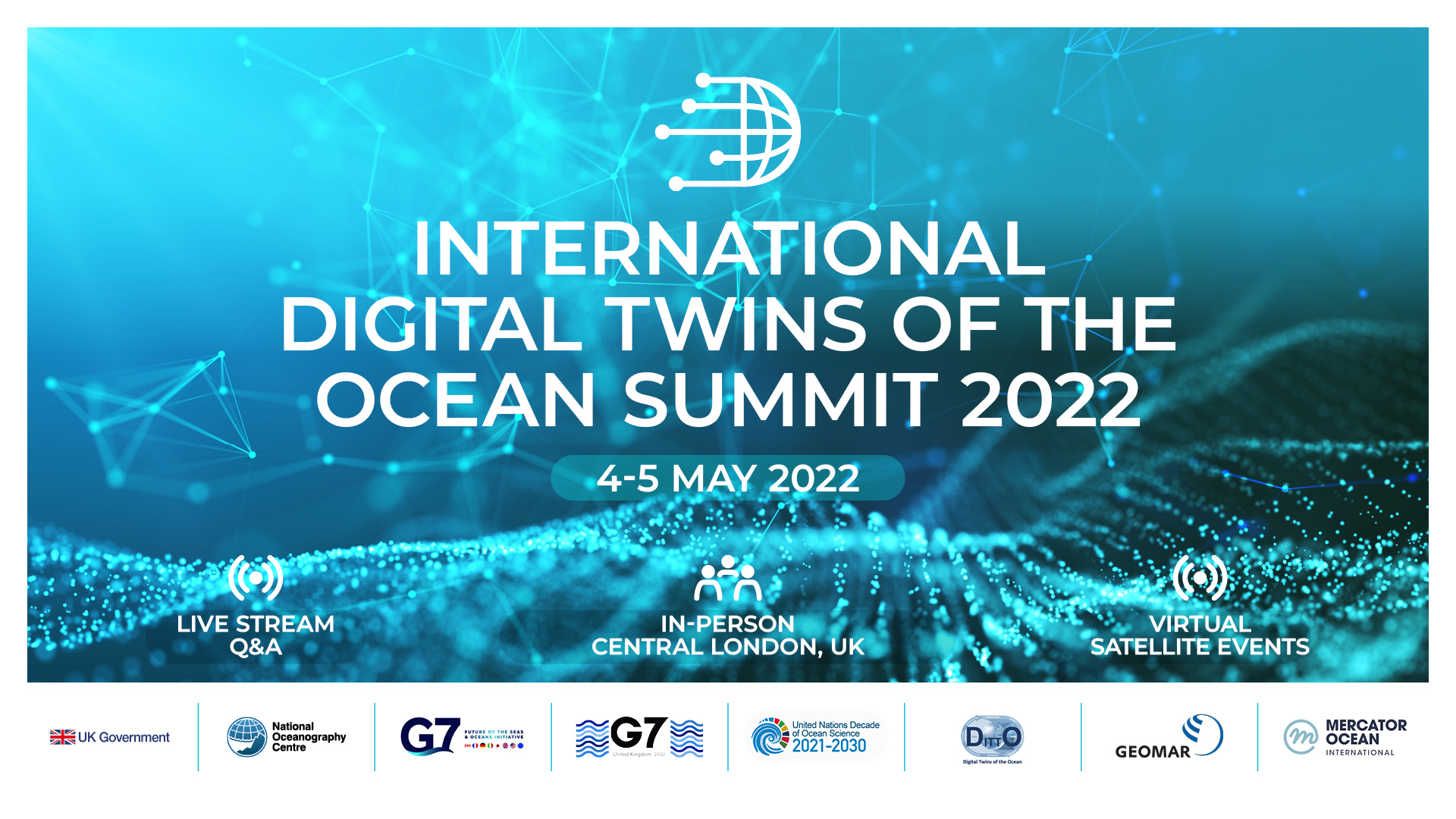
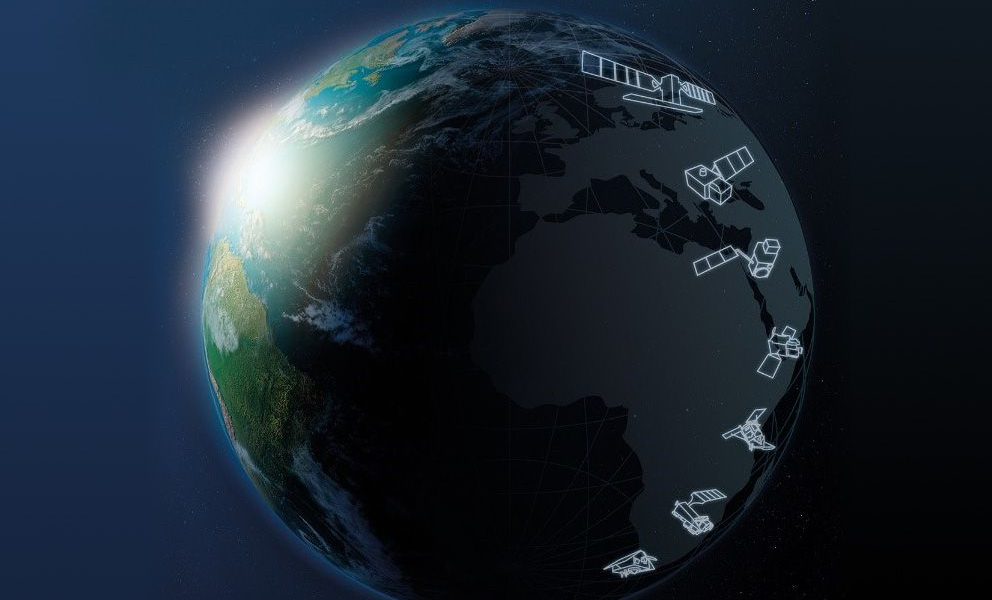 The European Commission, along with EU partner agencies ESA, EUMETSAT, and ECMWF, launched the Destination Earth initiative to help tackle climate change. Supported with an initial €150 million from the Digital Europe Programme until mid-2024, the goal is to develop a highly accurate digital model of the Earth. The European Digital Twin Ocean will be fully compatible with the Destination Earth (DestinE) architecture and be fully aligned with the DestinE phase 1 Digital Twins.
The European Commission, along with EU partner agencies ESA, EUMETSAT, and ECMWF, launched the Destination Earth initiative to help tackle climate change. Supported with an initial €150 million from the Digital Europe Programme until mid-2024, the goal is to develop a highly accurate digital model of the Earth. The European Digital Twin Ocean will be fully compatible with the Destination Earth (DestinE) architecture and be fully aligned with the DestinE phase 1 Digital Twins.

